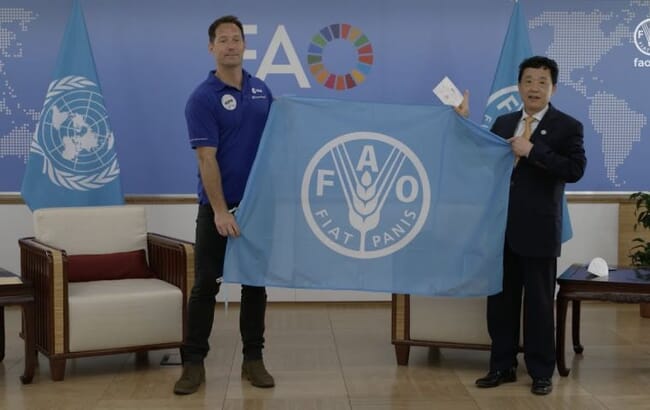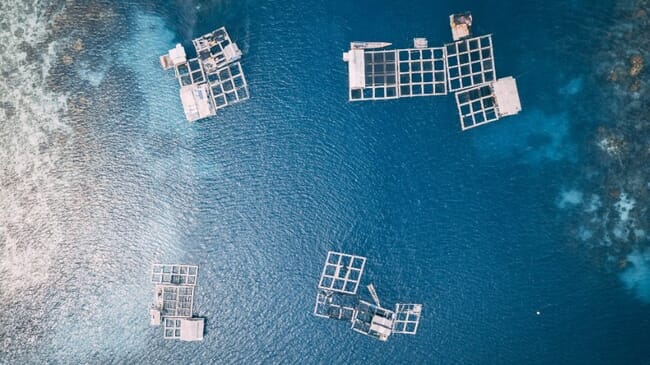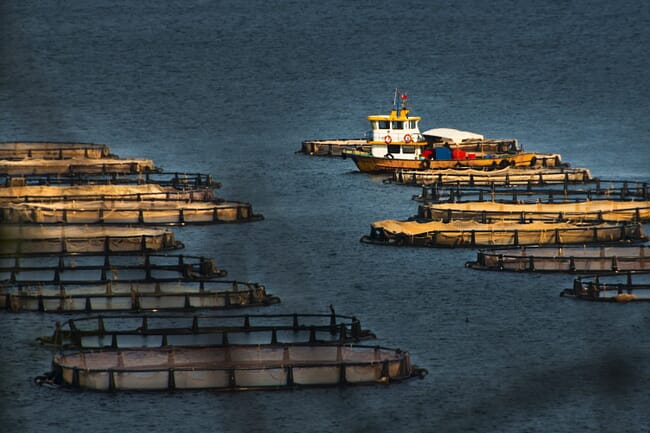
FAO chief Qu Dongyu, opened the virtual meeting of the 18th Session of the Committee on Fisheries (COFI) Sub-Committee on Fish Trade
Fisheries and aquaculture still face sustainability challenges, but as trade in the sector continues to grow, its contribution to food security and the safeguarding of livelihoods remains critical, Qu Dongyu, Director-General of the Food and Agriculture Organisation of the United Nations (FAO), said earlier this week.
He made the remarks at a virtual meeting of the 18th Session of the Committee on Fisheries (COFI) Sub-Committee on Fish Trade, the world's primary forum for fisheries and aquaculture trade discussions and decisions. More than 300 delegates registered from 65 Members and Observers for the meeting of this Sub-Committee, the first since the pandemic outbreak.
“The pandemic's effects on production, supply systems and markets caused significant disruptions and changes in the fisheries and aquaculture sector. Now, the sector’s resilience is being tested again as the effects of the war in Ukraine, as well as other conflicts around the world, are adding to the complexity of global operations of fisheries and aquaculture products,” the FAO Director-General told the meeting.
“Supply shortages for traditional fish species, rising transportation and fuel costs, and an overall price increase have resulted in changed consumer behaviour and demand adjustments, which have affected how fisheries and aquaculture products are produced and traded,” he added.
Nevertheless, Qu was upbeat about what the sector has to offer, saying it can bring positive change in terms of social inclusion, poverty alleviation and food security where new markets can generate income for small-scale producers, boost nutrition and reduce global imbalances. He also said it is a very inclusive sector for women, especially in processing activities.
“FAO is committed to continue supporting members to create a sustainable, inclusive, resilient and empowering fisheries and aquaculture sector,” the Director-General said.

FAO works to implement integrated approaches when addressing challenges in the aquaculture sector © Hanson Lu
Plenary session
The Virtual Plenary session is scheduled to take place on 7, 8, 9 and 20 June. This session includes 10 working documents. Among the documents typically submitted to members during Sub-Committee sessions are a wide range of fisheries and aquaculture trade-related themes. An overview of production patterns, trade and consumption, the work of FAO on trade-related issues, as well as the most recent FAO data, the links with other international organisations, and the FAO food safety work analysis are some of the perennial subjects.
The previous Sub-Committee meeting took place in Vigo, Spain, at the end of 2019.
FAO works to implement integrated approaches when dealing with trade and resource management, coastal management, aquaculture, livelihoods, food security and nutrition, value chains and aquatic food systems. It cooperates with other international organisations to leverage strengths, with an emphasis on capacity building and standard-setting activities.
These are activities that are well anchored in the “Blue Transformation” Programme Priority Area, set out in the FAO Strategic Framework 2022-31, which aims at supporting more efficient, more inclusive, more resilient and more sustainable aquatic food systems.

Committee on Fisheries
COFI is a subsidiary body of the FAO Council. It is the only global inter-governmental forum where FAO Members meet to review and consider the issues and challenges related to fisheries and aquaculture.
COFI provides periodic global recommendations and policy advice to governments, regional fishery bodies, civil society organisations, and actors from the private sector and international community.
The Committee has fostered the development and adoption of several binding agreements as well as non-binding instruments that have reshaped how the sector works in the interests of resource sustainability including biodiversity conservation.




